A. J. Fitzwater looks like they mean business as they take to a small, quirkily decorated stage in one corner of The Gym at The Arts Centre Te Matatiki Toi Ora. This impression is less about demeanour than it is about their black lipstick. Black lipstick makes a statement, I feel. Black lipstick says "Listen up, I've got important stuff to say".

Which was true, and some of it was serious but there was also a lot of conversation about "joy".
But I'm getting ahead of myself. Fitzwater and Karen Healey are here to talk about speculative fiction and specifically the local variety. Both have a lot of experience writing spec-fic, as well as having that work published internationally so they can bring that perspective to discussions of where Kiwi spec-fic sits in that literary world but also where this kind of genre fiction fits into the broader Kiwi literary landscape.
Also, it is a truth universally acknowledged that two spec-fic writers talking together will want (nay NEED) to give you a series of book recommendations accompanied by declarations like "they're my friend but read it because it's soooo goood". You get the impression that the New Zealand spec-fic scene is a small and supportive one where everyone reads everybody else's work, though Fitzwater is delighted to point out that there's so much being published now that it's hard to keep up. An excellent problem to have.
This what not always the case. Though Kiwi children and young adults have been well served in the past - Fitzwater mentions Maurice Gee and iconic 80s TV series' like Under the mountain and Children of the Dog Star - it's only in the last ten years that New Zealand spec-fic for adults has come into its own. This they put down partially to the explosion of online spec-fic magazines and increased accessibility (later they mention that in the past they'd have to send submissions to overseas mags in stamped self-addressed envelopes which seems incredibly laborious compared to the relatively simple process of submitting work online).
Karen Healey is an English teacher as well as a YA spec-fic writer so spoke a little about the perception of spec-fic as "kids' stuff" and made the point that a YA book has never won the country's major book award, in any era.
There's a tension between "realistic fiction" vs. "genre fiction" even though sometimes this is only a matter of labelling, using the example of Pip Adam's award-winning The New Animals which is treated as literary fiction but the ending of it is speculative. She also points out that Elizabeth Knox writes in "...whatever form or genre allows her to express her ideas". Sometimes it's fantasy, sometimes horror. Healey is of the opinion that spec-fic and romance, too are "undervalued", quite in opposition to its popularity. With books non-fiction rules, then romance and mystery, and spec-fic. Literary fiction is very much low down in terms of popularity with readers.
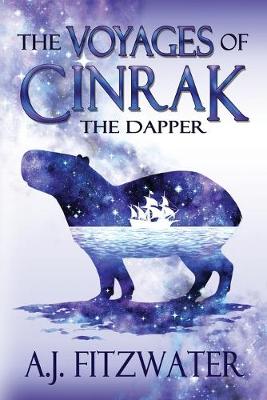 But back to joy. There's an idea that fantasy fiction for adults is, as Fitzwater puts it, all "...porn and death all over the place". The "Game of Thrones" vibe, if you will. But that's not necessarily the case. Take, for example, Fitzwater's The Voyages of Cinrak the Dapper (which came about as a happy accident). They hadn't intended to write a whole book about a lesbian pirate Capybara (who would?). It started as one story that was well-received and so they wrote more. They get letters from kids about Cinrak and it "makes my little queer heart go squishy". According to Fitzwater, joy is "a physical act and a connection. It's not about toxic positivity..."
But back to joy. There's an idea that fantasy fiction for adults is, as Fitzwater puts it, all "...porn and death all over the place". The "Game of Thrones" vibe, if you will. But that's not necessarily the case. Take, for example, Fitzwater's The Voyages of Cinrak the Dapper (which came about as a happy accident). They hadn't intended to write a whole book about a lesbian pirate Capybara (who would?). It started as one story that was well-received and so they wrote more. They get letters from kids about Cinrak and it "makes my little queer heart go squishy". According to Fitzwater, joy is "a physical act and a connection. It's not about toxic positivity..."
"Marginalised people have to imagine themselves into their lives." Who's going to want to imagine themselves without any joy? That doesn't seem like a good time. "The reclamation of joy," Fitzwater says, "is a revolutionary act."
This discussion of joy and imagining yourself into your identity leads Healey to say that "Science fiction made me Bi... Books are dangerous". And she points out that the question "what would the future look like if..." works as well with spec-fic as it does with identity. Fitzwater agrees that there is a large Queer community in spec-fic - "my queer identity journey goes along with my speculative fiction journey".
When it comes to writing spec-fic in Aotearoa Fitzwater's advice is to "stick to your guns". Those odd things about being a Kiwi can end up being really interesting and almost "exotic" for readers. Use New Zealand language and history and "write what you know about". Healey, to her credit, is upfront with the fact that she hasn't always done this and admits that her novel, Guardian of the Dead doesn't have "a nuanced approach" with regards to Te Ao Māori, and she wouldn't recommend it to people. I don't think I've ever heard an author talk about their work this way before, acknowledging their mistakes so openly, and I find myself heartily wishing some more of them would.
There are several questions from the audience, who have been prepped for brevity with threats of trapdoors and "sharks with lasers". LOL.
Any advice for authors wanting to be published overseas? For international publishers you need an agent (unless it's a small press), in New Zealand you can approach publishers directly but Healey warns of "the slush pile" where manuscripts can sit for months or a year. She also recommends researching the business of publishing and the business of writing. Fitzwater mentions local spec-fic conventions as a way of making connections though these are largely on hiatus because of "the panini... I hate saying the pandemic."
Advice for cis-heterosexual spec-fic writers wanting to write an inclusive world? Fitzwater's advice is simple: READ. Healey suggests that paying for sensitivity reads is a good move as well as doing as much research as possible but also be ready for criticism if you get it wrong.
What are the both working on now? Healey is working on a story based on the idea of billionaires coming to New Zealand and using it as a bolt-hole - "Billionaire edgelords OUT!". Her story looks at what happens when the security guards at these bunkers start to question things. She's also writing fan-fic which functions as an escape from the world. There's also a novella bubbling about a magical wardrobe person working on the set of a big budget fantasy production being made in New Zealand.
Fitzwater is working on a fantasy novel that encompasses 250 years of Queer New Zealand history and that looks at community and found family, going "deep into history and connecting people to each other". They have "a mess of a first draft" which will become a second draft next year.
Aotearoa Spec-fic: The recommendations
Lo, they were many and I didn't get every single one written down but try these out:
- Andi Buchanan's Witchy Fiction
- Gina Cole
- Whiti Hereaka
- Graci Kim
- Steph Matuku
Find more
- "Reimagining better worlds is what is going to get us through the Strange Times": A. J. Fitzwater - The book launch of No Man's Land
- Find titles by A. J. Fitzwater
- Find titles by Karen Healey
- Find spec-fic recommendations in our science fiction, fantasy, and horror reading guides.
More WORD Christchurch 2021
- Our WORD Christchurch page
- More WORD Christchurch posts
- WORD Christchurch website (for the full programme and info about authors)
- Follow WORD on Twitter, Facebook, and Instagram


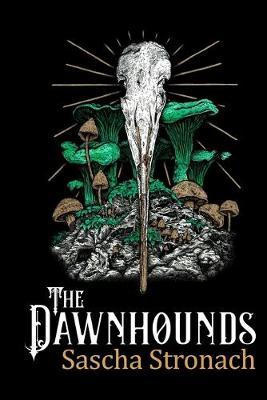
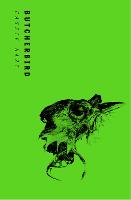
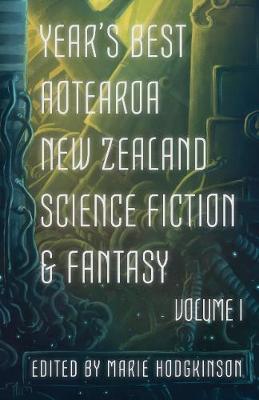
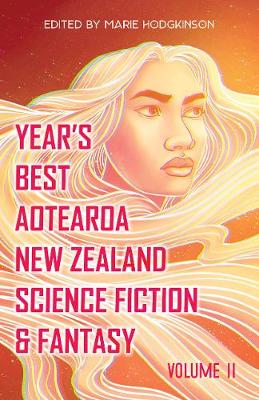
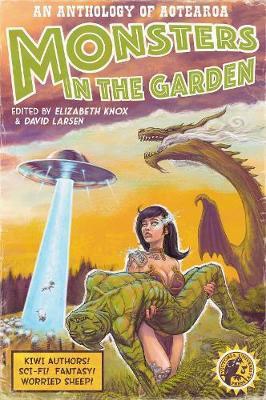
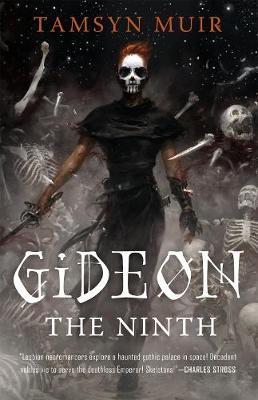
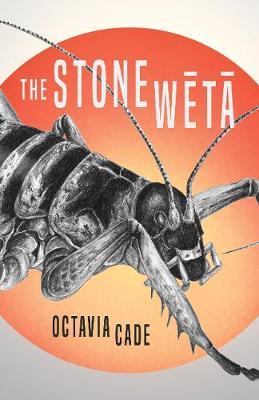
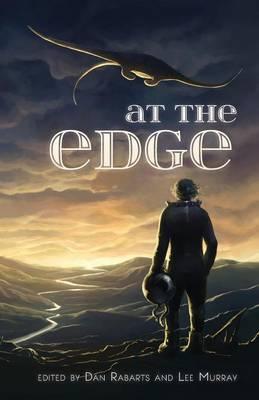
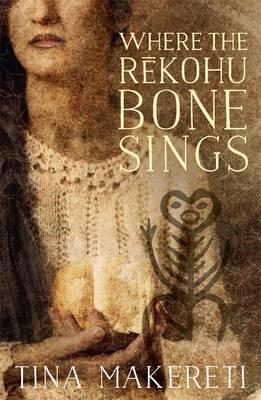

Add a comment to: WORD Christchurch 2021: World-building at the bottom of the world